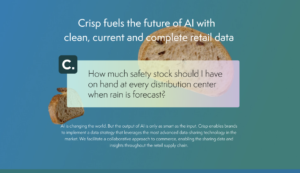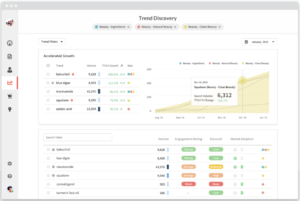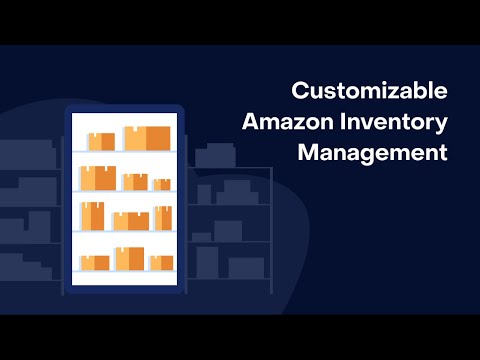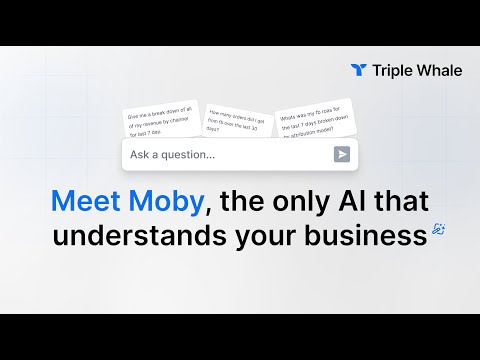
AI retail tools have moved far beyond simple automation and data crunching. Today’s platforms dive deep into the subtle patterns of consumer behavior, market dynamics, and operational efficiency – finding hidden opportunities that even experienced retailers might miss. What makes these tools particularly useful is their ability to process millions of micro-decisions simultaneously, from optimal shelf placement to precise inventory timing, creating a level of retail orchestration that was previously impossible.
In this guide, we will explore some AI tools that are reshaping how modern retail operates, each bringing its own specialized intelligence to solve complex retail challenges.
1. Kimonix
Kimonix is an AI merchandising platform that processes eCommerce data to optimize product placement and boost sales. The platform’s AMS (Advanced Merchandising Strategy) engine analyzes multiple retail metrics simultaneously – from sales performance to inventory levels and customer behavior patterns – to make smart merchandising decisions in real-time.
The AI engine connects directly with Shopify’s admin interface, requiring no coding while constantly syncing with store analytics. It creates dynamic product collections by processing sales metrics, inventory status, and customer insights, automatically adjusting product placements to maximize revenue. The system runs continuous A/B tests on collection strategies, selecting winning combinations based on performance data.
Key features:
- AI collection management with real-time optimization
- Multi-parameter product sorting based on sales, inventory, and margin data
- Automated A/B testing for strategy validation
- 1:1 product recommendations across store pages
- Email marketing integration with automated landing pages
2. Stackline
Stackline is an AI retail intelligence platform that processes data from over 30 major retailers to optimize eCommerce performance. The platform analyzes shopper behavior, marketing metrics, and operational data across 26 countries, helping over 7,000 global brands make smarter retail decisions.
The platform’s Shopper OS acts as the AI’s primary analysis center, processing first-party customer data from multiple retailers simultaneously. The AI system tracks real-time metrics – from sales patterns to search rankings – while connecting purchase behaviors directly to advertising campaigns through its Amazon partnership. This multi-retailer attribution system gives brands clear insights into how their marketing efforts drive sales across different channels.
The Beacon platform sits at the core of Stackline’s AI capabilities, unifying data streams from four key areas: shopper insights, marketing performance, operational metrics, and competitive intelligence. The AI processes this information to generate automated forecasts and scenario planning, while simultaneously monitoring digital shelf presence and optimizing retail media campaigns across marketplaces.
Key features:
- Multi-retailer customer data processing system with direct messaging capabilities
- Real-time analytics engine tracking sales and search performance
- Cross-channel attribution system with Amazon advertising integration
- AI-powered forecasting and scenario planning tools
- Automated content generation for product listings
3. Crisp

Image: Crisp
Crisp Data Platform is an AI system that processes retail data from over 40 retailers and distributors to give CPG (Consumer Packaged Goods) brands comprehensive control over their retail operations. The AI analyzes and standardizes diverse data streams – from inventory levels to consumer purchases – creating a unified view of retail performance.
The platform’s AI begins by cleaning and normalizing data from multiple sources into consistent schemas. This allows for both detailed analysis of individual retailers and broad national-level insights. The system processes data through specialized Commerce APIs that handle everything from chargeback disputes to purchase order generation, while maintaining strict data governance through controlled access to specific categories, products, and stores.
The AI’s data processing extends into advanced analytics, enabling brands to track consumer purchases across multiple channels while linking them to advertising campaigns. The system continually replicates this information into existing data lakes or warehouses, powering generative AI features that produce deeper retail insights. Through integration with Microsoft Azure, Databricks, and various BI tools, the AI maintains seamless connections with third-party applications for forecasting and financial planning.
Key features:
- Multi-source data processing system with 40+ retail integrations
- Commerce API framework for automated retail operations
- Cross-channel attribution system with campaign tracking
- AI-powered analytics engine with customizable dashboards
- Automated data replication with warehouse integration
4. ScanUnlimited
ScanUnlimited is an AI analysis platform that processes up to 300,000 Amazon products per hour, helping sellers find profitable inventory opportunities. The AI scans massive product catalogs – up to 30,000 items per scan – through multiple data formats including UPC, ASIN, EAN, and ISBN.
The AI’s core analysis engine calculates profit potential through a proprietary sales estimation algorithm, specifically tuned for the US Amazon marketplace. It processes multiple data points simultaneously: current market prices, competitor positions, fulfillment fees, and currency exchange rates across 200+ global currencies. The system also runs continuous restriction checks, alerting sellers to potential IP compliance issues before inventory investment.
The platform’s data visualization system processes historical price trends through three distinct Keepa charts, showing 30, 90, and 365-day patterns. For each product, the AI analyzes competitive dynamics, including Buy Box ownership and market positioning, while identifying special inventory considerations like Small & Light eligibility and hazmat requirements.
Key features:
- High-speed product scanning engine with multi-format support
- Sales estimation algorithm with profit calculation system
- Real-time restriction checking with IP compliance alerts
- Multi-timeframe historical analysis tools
- Competitive position tracking with Buy Box monitoring
5. Triple Whale
Triple Whale is an AI data analysis platform that integrates all Shopify store data streams – from marketing metrics to inventory levels – into a single intelligent system. Triple Whale’s AI processes information from multiple sources including Shopify, Google Analytics, and advertising platforms to give merchants clear insights for smarter decisions.
At the core of Triple Whale sits its proprietary Triple Pixel technology, which analyzes first-party customer data to decode the full purchasing journey. The AI examines every touchpoint in the customer experience, measuring how different marketing channels influence sales through its Total Impact Attribution model. This enables merchants to see precisely how their marketing spend translates into actual revenue.
Beyond marketing insights, the platform’s AI assistant “Willy” continually monitors store performance, spotting unusual patterns and potential issues before they impact sales. The system analyzes inventory movements in real-time, connects with shipping partners like ShipBob and ShipStation, and alerts merchants when promotional items risk going out of stock.
Key features:
- Multi-source data integration with real-time analytics processing
- Triple Pixel tracking system for purchase journey analysis
- AI anomaly detection with automated alerts
- Real-time inventory monitoring with logistics integration
- Customer segmentation engine with lifetime value tracking
6. Syndigo
Syndigo is an AI content engine that keeps product information accurate and engaging across countless retail channels. The platform’s AI analyzes and enriches product content – from basic specifications to rich media – ensuring shoppers always see compelling, accurate information no matter where they browse.
The AI’s product information management system goes beyond simple data storage. By applying SmartPrompts technology and integrating with ChatGPT, the AI transforms basic product details into rich, SEO-optimized descriptions that drive sales. When content needs updating, the system automatically propagates changes across all connected platforms, maintaining consistency whether customers shop on Amazon, Walmart, or specialty retailers.
The VendorSCOR tool represents the AI’s analytical core, continuously monitoring product content quality across the digital shelf. The system grades every product page, identifying gaps and opportunities while automatically instructing suppliers on specific improvements. This intelligent audit process ensures product content not only meets technical requirements but resonates with shoppers through vivid imagery and interactive experiences.
Key features:
- AI content generation system with ChatGPT integration
- Multi-format syndication engine supporting GDSN, ACES, and PIES standards
- Automated content grading with improvement instructions
- Rich media management system for visual content
- Real-time analytics engine for product performance tracking
7. Trendalytics

Image: Trendalytics
Trendalytics is an AI engine that decodes retail by analyzing millions of signals across social media, search patterns, and market data. It helps brands spot the next big trend before it hits mainstream, turning the complex web of consumer behavior into clear, actionable insights.
The AI’s trend analysis capabilities run deep. By processing visual content, social conversations, and shopping patterns simultaneously, the system builds intricate models of trend lifecycles. Each potential trend is tracked, giving retailers foresight into what’s next.
Beyond simple trend-spotting, the AI acts as a market intelligence hub. It analyzes competitor strategies by dissecting their product mix, pricing approaches, and visual merchandising choices. This competitive insight combines with deep consumer behavior analysis, creating a rich understanding of not just what’s selling, but why it resonates with shoppers.
Key features:
- Multi-channel trend detection system with lifecycle tracking
- Visual recognition engine for product and style analysis
- Competitive intelligence processing with price monitoring
- Consumer behavior analysis framework
- Predictive analytics engine for trend forecasting
8. RetailAI360
RetailAI360 is an analytics system that processes retail data streams to optimize operations and predict market changes. The AI analyzes real-time data across inventory, sales, and customer behavior to help retailers make faster, smarter decisions.
The system’s core engine processes three main data categories simultaneously: inventory metrics, customer interactions, and sales channel performance. For inventory, the AI monitors stock levels and generates automated reorder alerts. In customer analysis, it tracks browsing patterns and purchase histories to reveal emerging preferences. The system also unifies data from physical stores, online platforms, and mobile apps to create comprehensive performance insights.
The AI’s processing capabilities extend to predictive analytics, using historical patterns to forecast future trends and demand. This helps retailers shift from reactive to proactive management, particularly in inventory optimization and customer engagement strategies.
Key features:
- Real-time analytics engine with instant alert capabilities
- Multi-channel behavior analysis system
- AI-powered inventory optimization tools
- Predictive trend detection framework
- Automated report generation with visual insights
9. LEAFIO AI
LEAFIO AI is a retail management system that organizes inventory, store layouts, and supply chains through intelligent automation. The AI works across every retail level – from individual store shelves to warehouse distribution – creating a unified approach to retail optimization.
The platform’s inventory intelligence stands out through its self-regulating algorithms. When market conditions shift, the AI adapts its replenishment patterns automatically, maintaining optimal stock levels even during unpredictable periods. This dynamic response system connects directly to store cameras, using image recognition to spot empty shelves instantly and trigger smart restocking protocols.
The AI brings the same precision to store layouts. Its planogram optimization system analyzes customer flow patterns and product relationships, suggesting space arrangements that boost sales while maintaining operational efficiency. The system processes both macro store layouts and micro-shelf arrangements, ensuring every product finds its optimal position.
Key features:
- Self-learning demand forecasting engine
- Real-time shelf monitoring with image recognition
- Multi-level supply chain optimization system
- Dynamic planogram management tools
- Cloud-based analytics dashboard
10. ContactPigeon
ContactPigeon is an AI customer engagement platform that analyzes shopping behavior across multiple channels to create deeper connections between retailers and their customers. The system processes diverse data streams – from website interactions to purchase histories – building rich customer profiles that power personalized marketing.
The AI’s brain constantly analyzes and adapts to customer signals. When someone browses products, opens emails, or interacts with chat messages, the AI absorbs these behaviors into its understanding. This creates a dynamic feedback loop where each customer interaction makes future communications more relevant and engaging. The system runs automated workflows that respond to specific customer actions, from cart abandonment to post-purchase follow-ups.
The platform’s omnichannel communication system orchestrates personalized messages across email, SMS, push notifications, and Facebook Messenger. The AI determines optimal timing and channel selection for each message, while a specialized retail chatbot handles customer support inquiries.
Key features:
- Real-time behavior analysis engine with predictive capabilities
- Multi-channel messaging system with AI-optimized delivery
- Automated workflow engine for customer journey management
- AI chatbot designed for retail support scenarios
- Dynamic segmentation tools with behavior-based targeting
Transforming Retail Management Through AI
These top AI retail management platforms embody a fundamental change in how retailers approach their operations. Each tool tackles specific challenges: Kimonix optimizes product placement, Stackline decodes market intelligence, Crisp streamlines CPG operations, while platforms like Trendalytics predict tomorrow’s trends. Together, they form a comprehensive toolkit that enables retailers to process and act on data at unprecedented speeds and scales.
The future of retail clearly belongs to those who can leverage AI’s analytical power effectively. As these platforms continue to evolve, we will see even deeper integration between different retail functions – from inventory management to customer engagement. By embracing these AI tools, retailers are not just keeping pace with change – they are actively shaping the future of commerce.
The post 10 Best AI Tools for Retail Management (December 2024) appeared first on Unite.AI.











